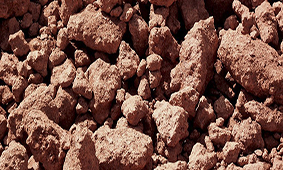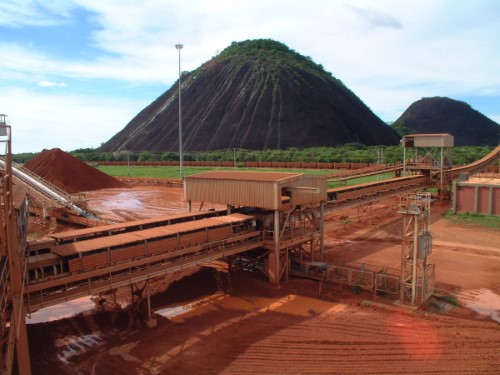
Bauxilum suspends bauxite, alumina production for unstable power supply and mismanagement

The company and union officials said they renounced the plans of ramping up the monthly production levels of 18,000 tonnes of alumina and reviving the company’s 6 million tonnes per year open-pit bauxite mine before the end of 2020 for the uncertain future.
Bauxilum's shutdown this month "shuts the lid on the aluminium industry's coffin," a senior company union official said. He added, "The entire Venezuelan aluminum industry from the Los Pijiguaos bauxite mine to the smelters is now shut down, possibly forever."
Industry and national production minister Tareck El Aissami, a member of Maduro’s inner circle, is of an opinion that the block of essential imports of caustic soda, spare parts, and mining equipment, as a result of the US sanctions against Maduro government, has led to the shutdown of Bauxilum. But the company’s union official sees the sanctions as a small factor besides mismanagement, poor quality alumina, lack of electricity, and the collapse of operational infrastructure.
According to a 10 October CVG report on the state-owned aluminium industry, Bauxilum could produce only 40,000 tonnes of alumina in total since its official relaunch in mid-April 2019, averaging monthly production 6,666 tonnes.
The report also showed that Bauxilum could not export the alumina produced since April for being unable to meet international quality specifications. The alumina is now piled up at dilapidated storage facilities at Bauxilum.
At the end of September, just before the shutdown, Bauxilum produced 120,000 tonnes per year of bauxite or 10,000 per month, representing roughly 2pc of its nameplate capacity, revealed the CVG report. But the efforts to raise the output stalled because most of the mine’s equipment went out of service and the US sanctions discouraged potential international bauxite buyers and foreign equipment vendors, added the report.
"Even Chinese and Russian aluminium companies declined to get involved in Venezuelan aluminum after inspecting conditions on the ground," a Bauxilum union official said.



Trump weighs using $2 billion in CHIPS Act funding for critical minerals

Codelco cuts 2025 copper forecast after El Teniente mine collapse

Electra converts debt, launches $30M raise to jumpstart stalled cobalt refinery

Barrick’s Reko Diq in line for $410M ADB backing

Abcourt readies Sleeping Giant mill to pour first gold since 2014

Nevada army depot to serve as base for first US strategic minerals stockpile

SQM boosts lithium supply plans as prices flick higher

Viridis unveils 200Mt initial reserve for Brazil rare earth project

Tailings could meet much of US critical mineral demand – study

Kyrgyzstan kicks off underground gold mining at Kumtor

Kyrgyzstan kicks off underground gold mining at Kumtor

KoBold Metals granted lithium exploration rights in Congo

Freeport Indonesia to wrap up Gresik plant repairs by early September

Energy Fuels soars on Vulcan Elements partnership

Northern Dynasty sticks to proposal in battle to lift Pebble mine veto

Giustra-backed mining firm teams up with informal miners in Colombia

Critical Metals signs agreement to supply rare earth to US government-funded facility

China extends rare earth controls to imported material

Galan Lithium proceeds with $13M financing for Argentina project

Kyrgyzstan kicks off underground gold mining at Kumtor

Freeport Indonesia to wrap up Gresik plant repairs by early September

Energy Fuels soars on Vulcan Elements partnership

Northern Dynasty sticks to proposal in battle to lift Pebble mine veto

Giustra-backed mining firm teams up with informal miners in Colombia

Critical Metals signs agreement to supply rare earth to US government-funded facility

China extends rare earth controls to imported material

Galan Lithium proceeds with $13M financing for Argentina project

Silver price touches $39 as market weighs rate cut outlook

















